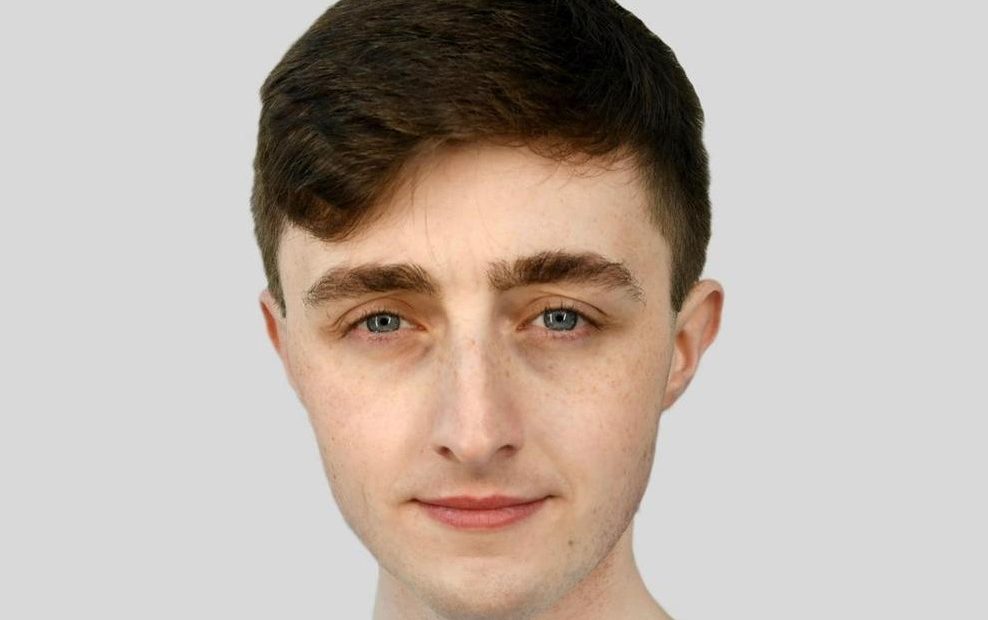KILLIAN FOLEY-WALSH: Covid is their fault. Who will we blame tomorrow?

I, like you, remember February 2020 like it was yesterday.
I remember the first murmurs that something was brewing in China, and that they had built a hospital overnight—because that’s just the way they do things on the side of the world that’s still functioning. I remember the water-cooler jokes about how great it would be if we could muster the same efficiency for our own Children’s Hospital (I also remember water-coolers and jokes, barely).
I remember Don Giuseppe Berardelli, the Milanese priest who died after giving the respirator his parishioners bought him to another, younger patient. In light of the horrifying photos and stories that were pouring out of Northern Italy, none of us can afford to forget heroic stories like his.
Crucially, I remember our first case. It was a secondary school student who had just returned from one of those Alpine skiing trips my school never had. They fell ill and were diagnosed with the disease on the quadrennial 29 February. That case—12 months and 200,000 other cases ago—ushered in what would quickly come to replace the GAA as our national pastime: the unyielding search for someone or something to blame for our suffering.
Amidst the talk of flattening the curve, the national panic grew exponentially, as did Joe Duffy’s share of the market.
Flights to Italy were to be cancelled, as were all planned skiing trips. Xenophobia and the fear of the foreign got the first of many outings, heralding future controversies.
For example, the sight of 50,000 people at Cheltenham, including many thousands of Irish, packed into stands like sardines made nobody comfortable, but the outrage and references to the risk their return would pose to the rest of us were such that you would have been forgiven for thinking they were in Chernobyl’s Reactor No. 3.
Not long after, Keelings’ soft fruit had the neck to ripen and need picking. As it was a job that the locals wouldn’t do, Keelings did what they do every year, and brought seasonal workers from Bulgaria to make sure we’d have strawberries through the summer. Once the public’s gaze fell on them, though, judgement was swift and merciless.
Who did they think they were coming here in a pandemic? Haven’t we enough unemployed of our own to take care of it? God only knows what they would bring with them! Fortunately, the efforts of the National Party and others to capitalise on similar sentiments with their “Ireland for the Irish” banners have been thus far unsuccessful, and Keelings gained new, loyal customers in me and many others.
But despite these earlier witch-hunts, it took us until August to show the world what we were truly capable of, and by the time Donie Cassidy had paid the deposit for the now-defunct Oireachtas Golf Society’s dinner in Galway, the alea had been well and truly iacta, and the fates of so many judges, politicians, and broadcasters were sealed.
While nobody would suggest that the controversy which came to be known as Golfgate was unprovoked, or that the participants were right to gather as they did, mature reflection convinced many that the pinatafication of our leaders—flawed and human as they are—was too much.
Having unceremoniously disposed of a European Commissioner, a Minister, the whips of several senators and almost a Supreme Court judge, the omnishambles that was the recent (albeit brief) activation of Article 16 by heavyweight Phil Hogan’s lightweight Latvian successor as EU Trade Commissioner left many commentators scratching their heads and wondering aloud whether Hogan in particular might have been better spared.
But we moved on, and cometh the winter, cometh new scapegoats in the form of (enviable, but statistically minor) holidaymakers; whether the handful of social media personalities off to the likes of Dubai, or the elderly widow who called Liveline from Tenerife to say how much better she felt being scared and alone under the warm Afro-Atlantic sun instead of scared and alone in frigid Irish “graupel”. The savaging of the lady that followed, as well as the increase in fines for seeking non-essential refuge abroad from €500 to €2,000, were disgraceful.
But even now, at this (hopefully) late stage of the pandemic, we are still finding donkeys to pin our opprobrium on. Enter Dr Gerard from Kildare, medicine’s noirest bete since Harold Shipman. Dr Gerard is a GP who is refusing to administer what he describes as the “experimental” Covid vaccine to any of his patients.
This may seem off the wall to many of us (it is—doctors differ, patients die etc.), but what effect are doctors like Gerard who refuse to vaccinate actually having in a country as devoid of vaccines as Ireland is, or in a political project as devoid of vaccines as the European Union is? Doctors like him may as well “refuse” to slingshot their patients to Jupiter: it won’t be happening whether they’re for it or against it.
It is difficult to view the whipping up any of these controversies as any more than cynical distractions. At a time when Northern Ireland is administering the per-capita equivalent of 34,000 vaccines a day (enough for the population of Kilkenny City, with change), while we struggled to hit 70 on February 15th, it suits some careers to keep us laser-focused on minutiae.
At a time when our politicians should be moving heaven and earth to get needles in our arms without delay, they penalise Irish people for crossing a now-rock hard Border whose total permeability was sacrosanct just eight weeks ago instead. At a time when our journalists should be questioning the powers that be on all the many flawed decisions they’ve made and are making, they corral our anger around the 1000 or so people using Dublin Airport on any given day instead
Because today Covid is their fault. Whose fault will it be tomorrow?
Killian Foley-Walsh is a writer and political commentator from Kilkenny




